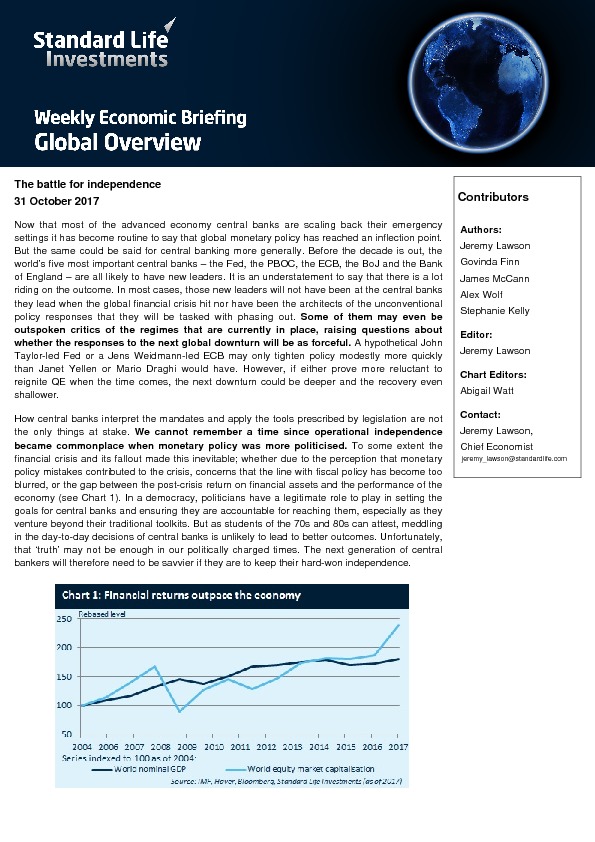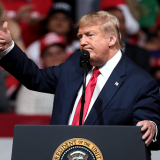Weekly Economic Briefing - The battle for independence

Now that most of the advanced economy central banks are scaling back their emergency settings it has become routine to say that global monetary policy has reached an inflection point. But the same could be said for central banking more generally. Before the decade is out, the world’s five most important central banks – the Fed, the PBOC, the ECB, the BoJ and the Bank of England – are all likely to have new leaders. It is an understatement to say that there is a lot riding on the outcome. In most cases, those new leaders will not have been at the central banks they lead when the global financial crisis hit nor have been the architects of the unconventional policy responses that they will be tasked with phasing out.
Some of them may even be outspoken critics of the regimes that are currently in place, raising questions about whether the responses to the next global downturn will be as forceful. A hypothetical John Taylor-led Fed or a Jens Weidmann-led ECB may only tighten policy modestly more quickly than Janet Yellen or Mario Draghi would have. However, if either prove more reluctant to reignite QE when the time comes, the next downturn could be deeper and the recovery even shallower.
Registreer of log in om verder te lezen. Investment Officer is een onafhankelijk journalistiek platform voor professionals werkzaam in de Belgische beleggingsindustrie.
Een abonnement is GRATIS voor professionals die werkzaam zijn bij banken en onafhankelijke vermogensbeheerders.



